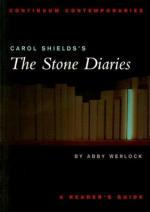|
This section contains 1,827 words (approx. 7 pages at 300 words per page) |

|
SOURCE: Showalter, Elaine. “How to Be Good.” London Review of Books (11 July 2002): 13.
In the following review, Showalter describes Unless as a novel that takes aesthetic and imaginative risks and debates questions of women's art and its reception.
The debate about women's writing—is it too restricted, domestic and love-obsessed, in contrast to the more sweeping, historical, socially aware and experimental novels of men?—has been going on since Jane Austen's day. Charlotte Brontë was one who rejected Austen's plot, which she called ‘a carefully fenced, highly cultivated garden’. Recently Gillian Beer even announced the death of the traditional women's novel: instead of the masochistic themes of unrequited love, she said at the Hay Festival, ‘women have freed themselves to write more forcefully about much larger networks, wars, families, communities, national change, terrorism and history.’
Not all women novelists would agree that such transformations are a liberation, however. In...
|
This section contains 1,827 words (approx. 7 pages at 300 words per page) |

|


